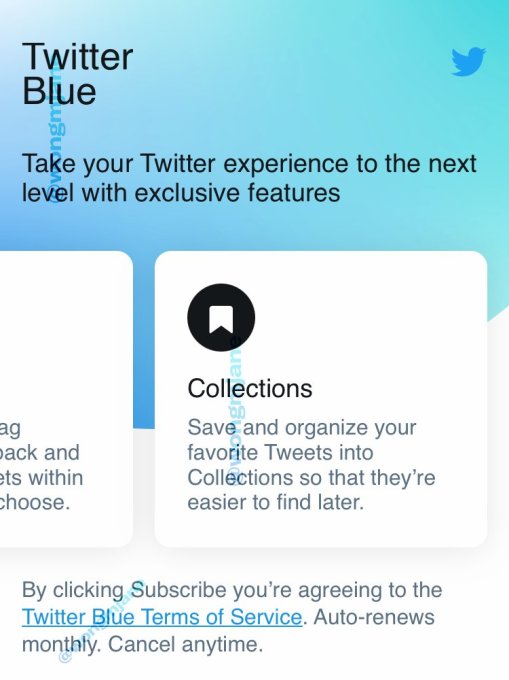For many VCs, the exit is the endgame; you cash in and move on. But as we know, the startup world is evolving, and that means the impact of investment is no longer limited to how much money is made.
As investors, we’re looking further into what each investment means to human beings, at interlinking our mission with our money. And yet, one of the events that generates the most momentum for long-term impact — the successful exit of a portfolio company — is not being harnessed.
When leveraged properly, an exit can be the beginning of a firm’s true impact, especially when we’re talking about giving all founders equal opportunities and empowering the best ideas. The investment sphere is slowly shaking off its “America first” approach as foreign products take the world by storm and international businesses become the norm.
When leveraged properly, an exit can be the beginning of a firm’s true impact, especially when we’re talking about giving all founders equal opportunities and empowering the best ideas.
Investors will be driving forces in enabling the highest-potential companies to build products that countries everywhere will benefit from — no matter where they were conceived. The way they play the game can transform the industry into one in which a founder from across the ocean has as much of a chance to change the world as one from next door.
We know the basics of how to do this with cash: Investing in underrepresented founders is a necessary first step. But who’s talking about the power of exits to change the playing field for diverse founders? We must consider the psychological motivation of seeing a huge buyout on other entrepreneurs, what that startup’s ex-team members go on to build, and what the achievements of one citizen does for that nation’s reputation.
Last year, 41 venture-backed companies saw a billion-dollar exit, totaling over $100 billion, the highest numbers in a decade. We have an unprecedented amount of clout to do something with those power moves and four ways to turn them into a domino effect.
1. Competitor effect
When a foreign entrepreneur raises money from U.S. firms and sells to a U.S. company, other immigrants see that. Regardless of how groundbreaking their product idea might be, immigrant Americans will always be more wary of putting their eggs into the entrepreneurship basket, at least as long as 93% of all VC money continues to be controlled by white men.
This, despite research suggesting that immigrants contribute 40% more to innovation than local inventors.
What these foreign entrepreneurs most need is confidence, role models and success stories proving other people who look like them have made it, especially when those founders are making waves in the same industry as them.
So a big, well-publicized exit will create momentum in the industry for other foreign founders to give fuel to their venture and seek to take it to the next stage. Not only that, it will instill more self-assurance when it comes to fundraising, and investors will value that.
I was inspired to write this column after Returnly, a fintech founded by a fellow immigrant from Spain based in San Francisco — which, for full transparency, I invested in as an angel investor, and then for Series B and C via my fund — was acquired for $300 million by Affirm.
While there was undoubtedly a personal financial gain worth celebrating, the success of a foreign founder who persevered against the odds in such a competitive ecosystem as Silicon Valley, raised large rounds from U.S.-based investors, and was finally acquired by a U.S. company served as a moment of inspiration for other diverse founders around the world. We saw this in the amount of media attention it received in both business and mainstream press in Spain and the floods of connect requests and congratulations that followed on LinkedIn.
The impact of an exit is greater when it shows foreign entrepreneurs that there are globally minded organizations helping startups like theirs get equal access to funding. That means having VC firms that spotlight international entrepreneurship and foster global expert networks.
As investors, we can maximize the impact of our exits in the industry by highlighting the foreign origins of our founders in a big way when it comes to promoting the exit, including narrating the challenges and opportunities they encountered on their journey. We can use the victory to drive the point home to our fellow investors that diverse and international entrepreneurship is an undervalued gem. We can personally take the win to boost our brand as one that empowers foreign entrepreneurs in that niche, attracting more to seek funding with us in a positive reinforcement cycle.
2. Wealth effect
The windfall from a big exit puts all previous investors in a privileged position, and it’s unlikely that money will sit around for long. They’ll look to reinvest in other high-potential companies — probably ones that look a lot like the one that was just sold.
But in addition to those investors multiplying the positive impact in their own portfolio, they will rally other investors to behave in a similar way.
Each exit — good or bad — sets a precedent for that niche and that type of company. Other investors will follow suit if they sense that one of their peers is onto a cash cow. Because foreign and ethnic minority founders are still underrepresented in startup funding, it makes this field less competitive while harboring huge potential. VCs who have an eye out for unique opportunities will spot when an investor has made a hefty profit from an unconventional startup, especially if they continue to invest in others in that same field.
To help this along, angels and VCs who’ve been behind a recent exit and are reinvesting in similar founders should publicize those knock-on investments, explaining how their previous success motivated them to support similar ventures. They can also be vocal within their network about their decision to raise up certain entrepreneurs because they’ve seen it works.
Returnly’s founder recently offered to put some of his earnings back into our fund, enabling more foreign entrepreneurs like himself to access capital. If as investors we foster meaningful relationships with our funders and truly care about empowering diverse entrepreneurs, we’ll see more of that wealth circle back into our mission.
3. Team effect
The PayPal Mafia is a set of former PayPal executives and employees — such as Elon Musk, a South African, and Peter Thiel, a German American — who have gone on to seriously disrupt not one but multiple industries across tech. Among the companies they’ve founded are YouTube, LinkedIn, Yelp and Tesla, and they’ve even been named U.S. ambassadors. That’s just one company. Imagine what other diverse and driven teams can do with the influx of cash and inspiration that comes with a big exit. There will be a ripple effect of team members eager to start out on their own who feel empowered by the success of someone who believed in them.
Their ventures will be more likely to “pass it on” when it comes to giving equal opportunities to people regardless of origin and will generate more jobs for people with their mission. Take Thiel, who has to date backed over 40 companies in Europe alone.
As VCs, we can capitalize on this team effect by keeping our eye on any spinoff ventures that arise and supporting them when possible (with experience and contacts, if not with capital). But beyond this, you can also consider encouraging these people to join the investment sphere, maybe even within your firm. Many successful startup founders and executives go on to become investors — the PayPal Mafia has contributed to some of the most notorious funds out there today. The origin story of these former team members will make them more prone to supporting underrepresented founders they can get behind. In turn, new entrepreneurs will draw more value from their personal experiences.
4. Reputation effect
Although Returnly is headquartered in San Francisco, its founder is Spanish and many of its employees were based in Spain.
That means that the impact of Returnly’s exit will be felt on the other side of the Atlantic as well as among co-nationals in the United States. The same is true of other notable sales, like AlienVault, which was founded in Spain and had multiple offices there. AlienVault was acquired by U.S. telecommunications giant AT&T for $900 million. Or IPOs — earlier this month, the Spanish-origin payments company Flywire filed for an IPO that could value the company at $3 billion. One startup’s success boosts the reputation of its entire team, and with it other founders and talent with their same country of origin, background, education and drive.
It follows that investors and other stakeholders will be more inclined to back opportunities among founders from the same home country if it says something about the mission, expertise and culture they bring to their startup.
At the same time, growing startups will be more interested in hiring the talent of evidently successful teams. That doesn’t just mean hiring more foreign experts in the United States, but seeking to outsource farther afield. We’re already becoming far more comfortable with remote teams, and it’s more capital-efficient for one half of the team to be working while the other half sleeps. But founders will always gravitate more to countries where local talent and innovation is already seen to be thriving. Open up that conversation with your portfolio companies.
VCs have the power to change an industry forever, to connect startup ecosystems across continents and to see startups expand worldwide. But this is about staying relevant as an investor as much as it’s about ensuring this next stage in the startup world is a positive one.
Investors who don’t recognize that the future of startups is global and diverse in nature won’t be in sync with the best opportunities — and won’t be selected by the best founders. Rather than trying to play catchup, help build that ecosystem.
https://ift.tt/eA8V8J The exit effect: 4 ways IPOs and acquisitions drive positive change across the global ecosystem https://ift.tt/3fv30SU






























